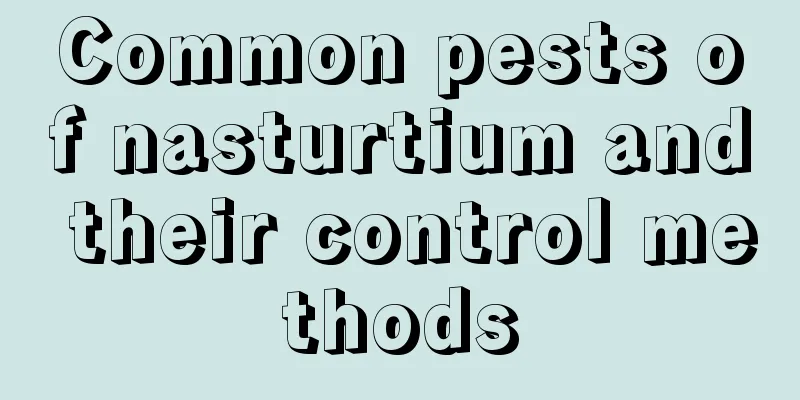Common pests of nasturtium and their control methods

Common pests of nasturtium: leaf minerSymptoms of pests: The larvae burrow into the new shoots and tender leaves of the plant, forming tortuous tunnels in the disaster layer of the upper and lower epidermis, which prevents the entire new shoots and leaves from stretching and makes them easy to fall off. In severe cases, the autumn shoots can all turn yellow. Occurrence pattern: About 10 generations can occur a year, and the pupae and larvae overwinter on the damaged leaves. The larvae begin to cause damage from late April to early May every year, with the peak period from July to September, when the damage is also severe. The occurrence is the least after October. Most of them bore into the leaf margins, where they spin silk to make thin cocoons and pupate, often causing the leaf edges to curl up. Seedlings and young trees, because they have many and uneven shoots, are suitable for adult insects to lay eggs and larvae to cause damage, and are often more seriously affected than adult plants. Prevention and control methods: Cut off diseased leaves and spray carbendazim. Common pests of nasturtium: red spider mitesPest symptoms: Red spider mites are one of the most common plant pests, and they reproduce quickly, able to reproduce about 10 generations a year. Red spiders are extremely small in size. They use their piercing-sucking mouthparts to insert into the mesophyll and stem bark of plants, sucking the sap of the plants, causing the plants to turn yellow or even wither. After the red spider mite pest appears, there will often be spider silk on the back of the leaves. Once spider silk is found, you must search for traces of the red spider and then eliminate it. Prevention and control methods: Spray 1500 times diluted 40% oxydemeton-methyl emulsifiable concentrate. |
<<: Pests and control methods of Gloxinia
>>: Common pests of delphinium and their control methods
Recommend
How to cultivate Potentilla fruticosa
Plant habits This plant is very cold-resistant an...
How to grow tiger orchid to make it bloom
Tiger orchid flowering time Tiger orchid is a pla...
Will the lotus bamboo bloom?
1. Will it bloom? In fact, it doesn't bloom. ...
How to care for azalea bonsai and how to shape azalea bonsai
1. Bonsai maintenance methods 1. Watering: It lik...
How long is the growth cycle of orchids?
Introduction to Orchid Growth Orchids are mostly ...
Is lettuce a genetically modified vegetable? How to keep it fresh?
1. Are they genetically modified vegetables? Lett...
How to breed Aizenjin
How this plant reproduces Sowing: This method is ...
Do dianthus flowers prefer shade or sun?
Do dianthus flowers prefer shade or sun? Dianthus...
Is it profitable to plant sweet osmanthus trees? What are the prospects for planting?
Is planting osmanthus trees profitable? At presen...
When do Luoyang peonies bloom?
1. When to open Luoyang peonies are famous far an...
Appreciation of hydroponic cultivation of Echeveria luxuriata
Water culture and maintenance of Echeveria luxuri...
How long is the growing season for spring corn?
How long is the growing season for spring corn? T...
Gardenia leaves wilt remedies
1. Waiting for adaptation If the plant has just b...
How many years does it take for Amomum villosum to bear fruit?
Introduction to Planting Amomum villosum Amomum v...
What are the cultivation methods and precautions of Tiger Jasmine?
How to grow tiger jasmine Tiger jasmine is a spec...









